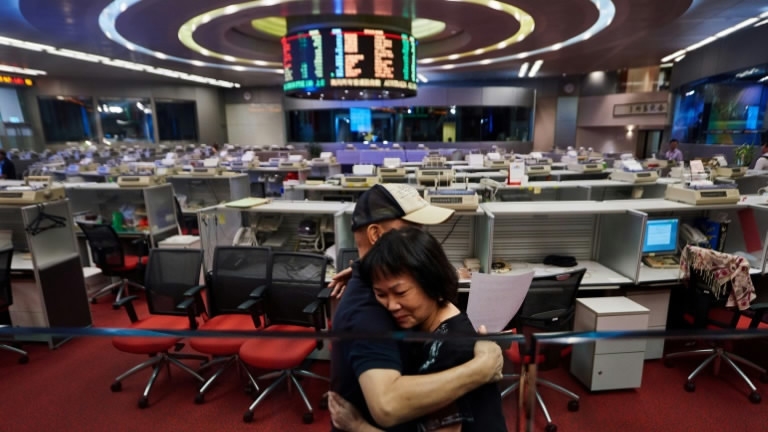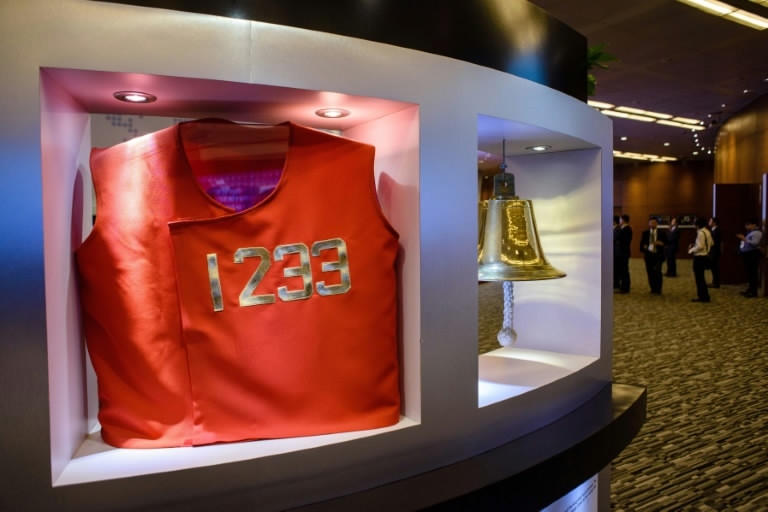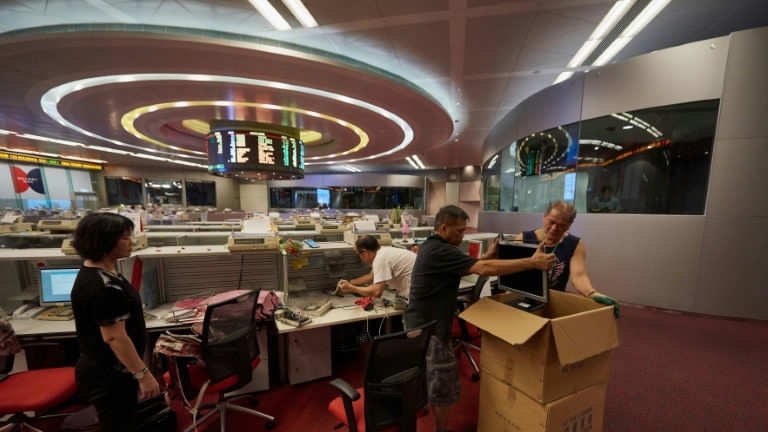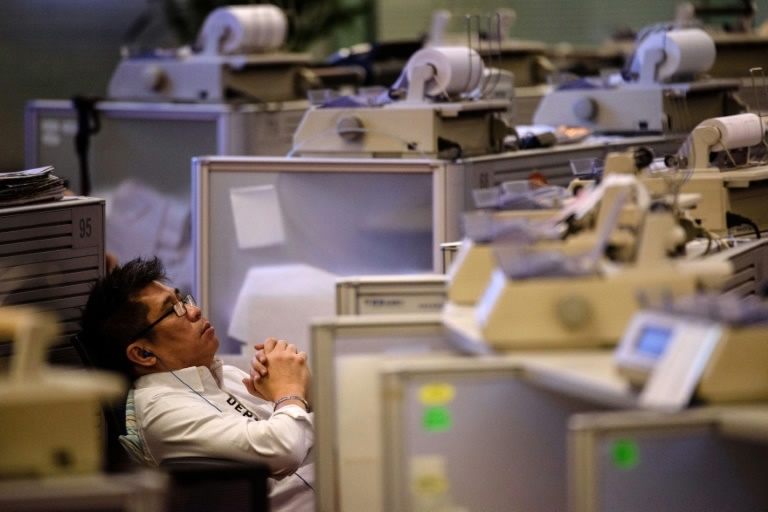
Culture
17:57, 22-Oct-2017
Cashing out: The end of the historic Hong Kong Stock Exchange
CGTN

With just a handful of traders remaining, the historic hall of the Hong Kong Stock Exchange (HKSE) will close at the end of the month. In its heyday in the 1980s, more than a thousand brokers dressed in signature red blazers made deals on the HKSE's trading floor – a raucous, competitive bear pit.
But as electronic and Internet services burgeoned, brokers drifted away to corporate offices.
The cavernous red-carpeted space, with its circular rows of cubicles and giant digital screens showing stock movements, stands largely empty as its last occupants pack up their belongings.
"Advances in electronic trading and technology have made our work much more convenient, but now it lacks the communal atmosphere that has given me many memories," said Christopher Cheung, a lawmaker representing the financial services sector who used to trade on the exchange floor.

In its heyday in the 1980s, more than a thousand brokers dressed in signature red blazers made deals on the trading floor of the Hong Kong Stock Exchange. /AFP Photo
In its heyday in the 1980s, more than a thousand brokers dressed in signature red blazers made deals on the trading floor of the Hong Kong Stock Exchange. /AFP Photo
In 1986, Hong Kong's four separate stock exchanges merged into one and the trading floor opened.
Part of the Hong Kong Exchange (HKEX) building in the bustling Central district, it hummed with energy as brokers exchanged gossip, gesticulated wildly and yelled into telephones.
Market information spread quickly and clients would call in for the latest news, Cheung remembers.
But despite apparent chaos, Cheung says there was a "culture of trust." On slower days, traders played cards and snacked on peanuts.
Cheung's company Christfund Securities still has one employee working on the floor in case his office's computers crash, he said.
The Shu sisters, who run Wader Securities, share Cheung's nostalgia. "When there was a rally on, it was a sheer joy to work," Shu Yee-har, one of the three siblings, told the South China Morning Post. "It was much better than staying in the office."
Emotional farewell
An early form of electronic trading was introduced in 1993, triggering a major shift away from face-to-face deals.
Three years later brokers were able to trade away from the hall as terminals were installed in their own offices.

HKEX says the trading hall will be remade into an exhibition and event space as part of wider renovations to the building. /AFP Photo
HKEX says the trading hall will be remade into an exhibition and event space as part of wider renovations to the building. /AFP Photo
From 2000 they could offer services online, after the exchange invested 300 million Hong Kong dollars (38 million US dollars) in cutting-edge technology.
More brokers drifted away from the communal hall and the handful of firms that remained mostly used it as an affordable and conveniently located office space.
When AFP visited, there were around 10 traders on the floor, with the surrounding desks and archaic-looking paper printers gathering dust.
The brokers still bantered and bemoaned plunging stocks and there was an occasional ripple of excitement.
One trader, who gave her name as Cheung, said she was "walking away with a torn heart" as she prepared to pack her belongings into a small suitcase, carrying a bouquet of flowers given to her by a fellow broker.
Having worked on the floor since 1994 she will now be based in a company office.
She said a handful of brokers had written to the government in a bid to keep the space open for trading, to no avail. "I will miss the freedom here. Who wants to face their boss every day?" she told AFP.

With just a handful of brokers remaining on the floor, the historic trading hall will close at the end of the month. /AFP Photo
With just a handful of brokers remaining on the floor, the historic trading hall will close at the end of the month. /AFP Photo
HKEX said the hall would be remade into an exhibition and event space as part of wider renovations to the building.
It is the end of an era for an exchange which is ever expanding, buoyed by an influx of Chinese investors.
The market is harder to predict these days and the old intimacy has gone, says lawmaker Cheung.
"All we can do is to keep working hard," he said.
Source(s): AFP

SITEMAP
Copyright © 2018 CGTN. Beijing ICP prepared NO.16065310-3
Copyright © 2018 CGTN. Beijing ICP prepared NO.16065310-3